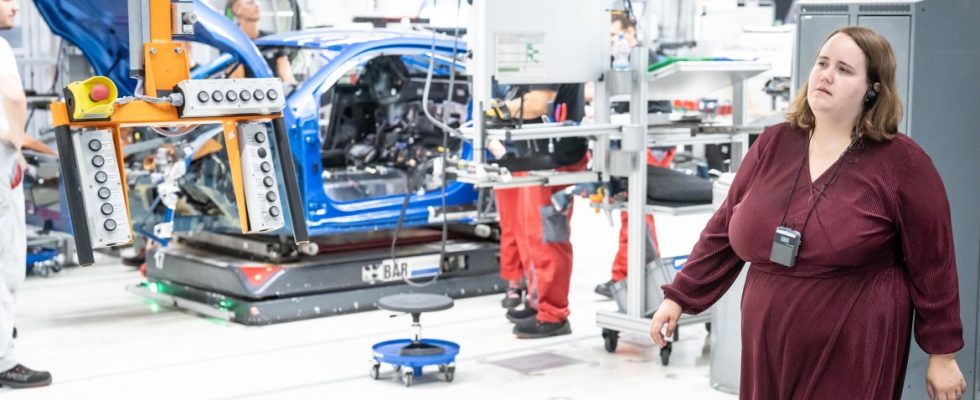What is the Greens doing before the state elections in Bavaria and Hesse? Anyone watching the leaders of the party during the election campaign will get a clear answer. It doesn’t matter whether it’s a Bosch chip factory, an Audi car plant or a brewery: the party leadership has swarmed out from Berlin more often than ever before to visit companies and their employees in particular. A meeting of the party leaders a few days ago in Nuremberg also had one main topic: the restructuring of the country’s economy and further help for companies.
The goal is clear: The Greens finally want to overcome the skepticism of the economy and also that of some citizens towards their own politics. Because in surveys on economic competence, the party, which has not given up the dream of moving into the chancellor’s office, regularly ranks at the bottom, to its own chagrin. It is probably also the receipt for some government disputes, such as the heating law by Economics Minister Robert Habeck and Building Minister Klara Geywitz (SPD).
Now the party wants to go even stronger on the offensive and is taking another step towards the economy – a pretty big one in fact. Because the party leadership of the Greens and around 30 other top people from the party were elected to a newly created body on Tuesday evening: the political advisory board of the new Economic Association of the Greens, founded in the spring, a lobby association in which companies are members.
According to the resolutions, this advisory board will be headed by the party leadership of Ricarda Lang and Omid Nouripour. Also represented are Baden-Württemberg’s Prime Minister Winfried Kretschmann, Hesse’s Deputy Prime Minister Tarek Al-Wazir, Federal Minister for Family Affairs Lisa Paus, State Secretaries of the Federal Government, Members of the Bundestag and the European Parliament, as well as local politicians from the party. The political advisory board has a total of 32 Greens representatives from all political levels.
The body should act independently of the trade association – but be your political counterpart. This creates a direct line from member companies of the association such as Siemens, Google, Aldi, RWE or SAP to the party leadership. “With the political advisory board, we are underlining how important this dialogue with business is to us,” Green Party leader Nouripour said on Wednesday. “As the Greens, we want to write the next chapter in the success story of Germany as a business location.” The chairwoman of the board of directors of the Economic Association of the Greens, Heike Discher, evokes a new closeness: “From the business world, with politics, that’s the Economic Association of the Greens.”
“Privileged access” and possibly “non-transparent cash flows”
However, organizations critical of lobbying see the project as anything but a successful project. “It’s problematic when top politicians allow themselves to be directly involved in the work of a business lobby association – and as chairmen of the advisory board with management functions,” says Christina Deckwirth from Lobbycontrol der Süddeutsche Zeitung. “In this way, an already financially strong social group benefits from privileged access to top green personnel.” On the other hand, these approaches are not equally open to others. “In terms of the democratic system, clear dividing lines are needed between the party and business lobby organizations,” warns Deckwirth.
The Greens are not alone with the project. From the critics’ point of view, however, that doesn’t make it any better. In the environment of the party, a construct is created that the CDU with the Economic Council and the SPD with the Economic Association have had in a slightly different form for years.
It is also problematic that the economic association is very closely linked to the party, but as an organization outside the party it is not subject to the transparency regulations of the party law, according to Lobbycontrol. “The association thus offers a gateway for opaque money flows in the environment of the Greens,” says Deckwirth. “Of course, this also applies to other business lobby groups close to the party, such as the Economic Council of the CDU.”
The power struggle between two business lobby groups for the favor of the Greens leadership was also decided with the close alliance of the party leadership with the Economic Association. Because the Greens actually already had a party-related business association with 80 supporting members: the Green Business Dialogue founded in 2018, in which companies such as BASF, Amazon, Allianz, Commerzbank and Uber are active. The trust in the competing organization had recently disappeared, it said.

